June 17th, 2013 — 7:32pm
 Maus I & II- by Art Spiegelman Reviewed by Lucy Blumenfield (Age 12) – Although there are other books that tell the tale of the Holocaust through a survivor’s perspective, this book is unique. It is the story, and it is true, about a man—Art Spiegelman, the author—who interviews his father—Vladek Spiegelman to preserve his story of the Holocaust, and illustrating this story in the form of a graphic book. Spiegelman uses animals to express the way different groups of people in this book might act. For example, he uses mice as the Jews, cats as the Germans, and pigs for this Poles. This really intensified the book because it kind of showed you who someone was and also made a political statement in my view. Spiegelman’s illustrations make this haunting story come to life as he tells about his father’s struggles: first hiding in house to house with his wife, trying to escape Poland, and finally being captured and put into Auschwitz, and after ten months being freed and reuniting with his wife. The book changes back between Art’s visits to his not-in-great-shape father in Rego Park, and his father’s experiences told by Vladek.
Maus I & II- by Art Spiegelman Reviewed by Lucy Blumenfield (Age 12) – Although there are other books that tell the tale of the Holocaust through a survivor’s perspective, this book is unique. It is the story, and it is true, about a man—Art Spiegelman, the author—who interviews his father—Vladek Spiegelman to preserve his story of the Holocaust, and illustrating this story in the form of a graphic book. Spiegelman uses animals to express the way different groups of people in this book might act. For example, he uses mice as the Jews, cats as the Germans, and pigs for this Poles. This really intensified the book because it kind of showed you who someone was and also made a political statement in my view. Spiegelman’s illustrations make this haunting story come to life as he tells about his father’s struggles: first hiding in house to house with his wife, trying to escape Poland, and finally being captured and put into Auschwitz, and after ten months being freed and reuniting with his wife. The book changes back between Art’s visits to his not-in-great-shape father in Rego Park, and his father’s experiences told by Vladek.
This book was a unique experience because I have not seen history told by graphic novels before. However, it was an experience that I want more of! It was informative, captivating, humorous in parts, moving, and—at times—heart breaking. I highly recommend this book to everyone, from adults to children because it gives you an insight to the horrifying experiences of the Holocaust in a whole new way.
1 comment » | H - Humor, HI - History, O - Other - Specify, P - Political, T - Recommended for Teenagers
September 4th, 2009 — 5:50am
The Book Thief by Markus Zusak
by Markus Zusak
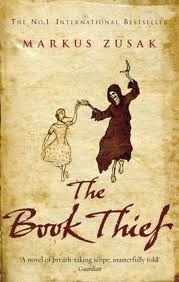 My initial experience with the book was somewhat negative. First, finding the book in the teen department of Barnes & Noble seemed somewhat curious. I had difficulty getting in to the book as the style and narrative seemed unusual and in retrospect perhaps uncomfortable as it seemed to be written from the point of view of an angel of death. Perhaps after about 50 pages I was comfortable with the book and was being drawn in to it although I could still easily put it down.
My initial experience with the book was somewhat negative. First, finding the book in the teen department of Barnes & Noble seemed somewhat curious. I had difficulty getting in to the book as the style and narrative seemed unusual and in retrospect perhaps uncomfortable as it seemed to be written from the point of view of an angel of death. Perhaps after about 50 pages I was comfortable with the book and was being drawn in to it although I could still easily put it down.
I also felt an early identification of Liesel with my seven year old granddaughter who has recently fell in love with words and books. This connection began to give me an added emotional attachment to the characters and the story which I usually have anyway to a holocaust book. I felt the author was making a meaningful insight to me as he spoke about Kristolnacht and clearly conveyed how the Nazis were bent on destroying words and the ideas behind them perhaps just as much as they were displacing their frustrations and hate on the Jews. As the book progressed – it became a page turner for me. The author used an interesting style of foreshadowing the events coming in each chapter which toyed with my anxiety and concern about the characters but yet I couldn’t be sure what was going to happen. I began to realize that I was developing great empathy and caring for the characters who were German non-Jews. I desperately wanted the characters who went off to fight the allies to survive. When the Jews were marched through the streets on their way Dachau Concentration Camp – I was accepting the idea that most of the observers were neutral and of course the main characters were heroic in wanting to give them bread.
By the conclusion of the story I of course was fully on board with the idea that all war is terrible and I felt very badly that most of the characters had been killed. I was touched that Liesel and Max had survived and were together. But what did they do with their life and did they feel guilty about what had been done to the Jews? The author who obviously was not Jewish said that he wrote the story based on memories of stories that his parents have told him from Austria and Germany and he wanted to show that not all Germans were bad. I found this quote from him on the Internet:
One day, there was a terrible noise coming from the main street of town, and when she( his mother) ran to see it, she saw that Jewish people were being marched to Dachau, the concentration camp. At the back of the line, there was an old man, totally emaciated, who couldn’t keep up. When a teenage boy saw this, he ran inside and brought the man a piece of bread. The man fell to his knees and kissed the boy’s ankles and thanked him…Soon, a soldier noticed and walked over. He tore the bread from the man’s hands and whipped him for taking it. Then he chased the boy and whipped him for giving him the bread in the first place. In one moment, there was great kindness and great cruelty, and I saw it as the perfect story of how humans are.
Therefore I reflect that at best this 30 year old author is an apologist for the Germans of the Nazi era and at worst has little appreciation for what really happened in the holocaust. Therefore I find myself negatively inclined toward him and what he had to say. He is a talented writer and wrote a great book . I am glad I read it but I wouldn’t recommend it to everyone and I am not sure to whom I would urge that they should read it. I recognize that this is a very personal reaction but it is the way I find myself feeling at this time.
Comment » | FH - Fiction Historical
 Maus I & II- by Art Spiegelman Reviewed by Lucy Blumenfield (Age 12) – Although there are other books that tell the tale of the Holocaust through a survivor’s perspective, this book is unique. It is the story, and it is true, about a man—Art Spiegelman, the author—who interviews his father—Vladek Spiegelman to preserve his story of the Holocaust, and illustrating this story in the form of a graphic book. Spiegelman uses animals to express the way different groups of people in this book might act. For example, he uses mice as the Jews, cats as the Germans, and pigs for this Poles. This really intensified the book because it kind of showed you who someone was and also made a political statement in my view. Spiegelman’s illustrations make this haunting story come to life as he tells about his father’s struggles: first hiding in house to house with his wife, trying to escape Poland, and finally being captured and put into Auschwitz, and after ten months being freed and reuniting with his wife. The book changes back between Art’s visits to his not-in-great-shape father in Rego Park, and his father’s experiences told by Vladek.
Maus I & II- by Art Spiegelman Reviewed by Lucy Blumenfield (Age 12) – Although there are other books that tell the tale of the Holocaust through a survivor’s perspective, this book is unique. It is the story, and it is true, about a man—Art Spiegelman, the author—who interviews his father—Vladek Spiegelman to preserve his story of the Holocaust, and illustrating this story in the form of a graphic book. Spiegelman uses animals to express the way different groups of people in this book might act. For example, he uses mice as the Jews, cats as the Germans, and pigs for this Poles. This really intensified the book because it kind of showed you who someone was and also made a political statement in my view. Spiegelman’s illustrations make this haunting story come to life as he tells about his father’s struggles: first hiding in house to house with his wife, trying to escape Poland, and finally being captured and put into Auschwitz, and after ten months being freed and reuniting with his wife. The book changes back between Art’s visits to his not-in-great-shape father in Rego Park, and his father’s experiences told by Vladek.

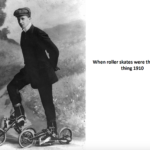

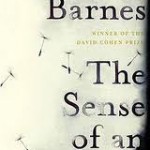
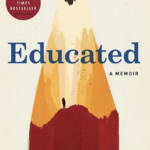

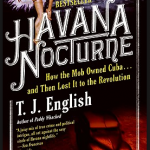
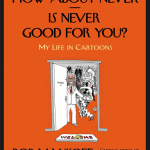
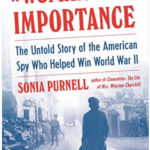
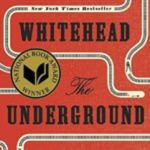



 My initial experience with the book was somewhat negative. First, finding the book in the teen department of Barnes & Noble seemed somewhat curious. I had difficulty getting in to the book as the style and narrative seemed unusual and in retrospect perhaps uncomfortable as it seemed to be written from the point of view of an angel of death. Perhaps after about 50 pages I was comfortable with the book and was being drawn in to it although I could still easily put it down.
My initial experience with the book was somewhat negative. First, finding the book in the teen department of Barnes & Noble seemed somewhat curious. I had difficulty getting in to the book as the style and narrative seemed unusual and in retrospect perhaps uncomfortable as it seemed to be written from the point of view of an angel of death. Perhaps after about 50 pages I was comfortable with the book and was being drawn in to it although I could still easily put it down.